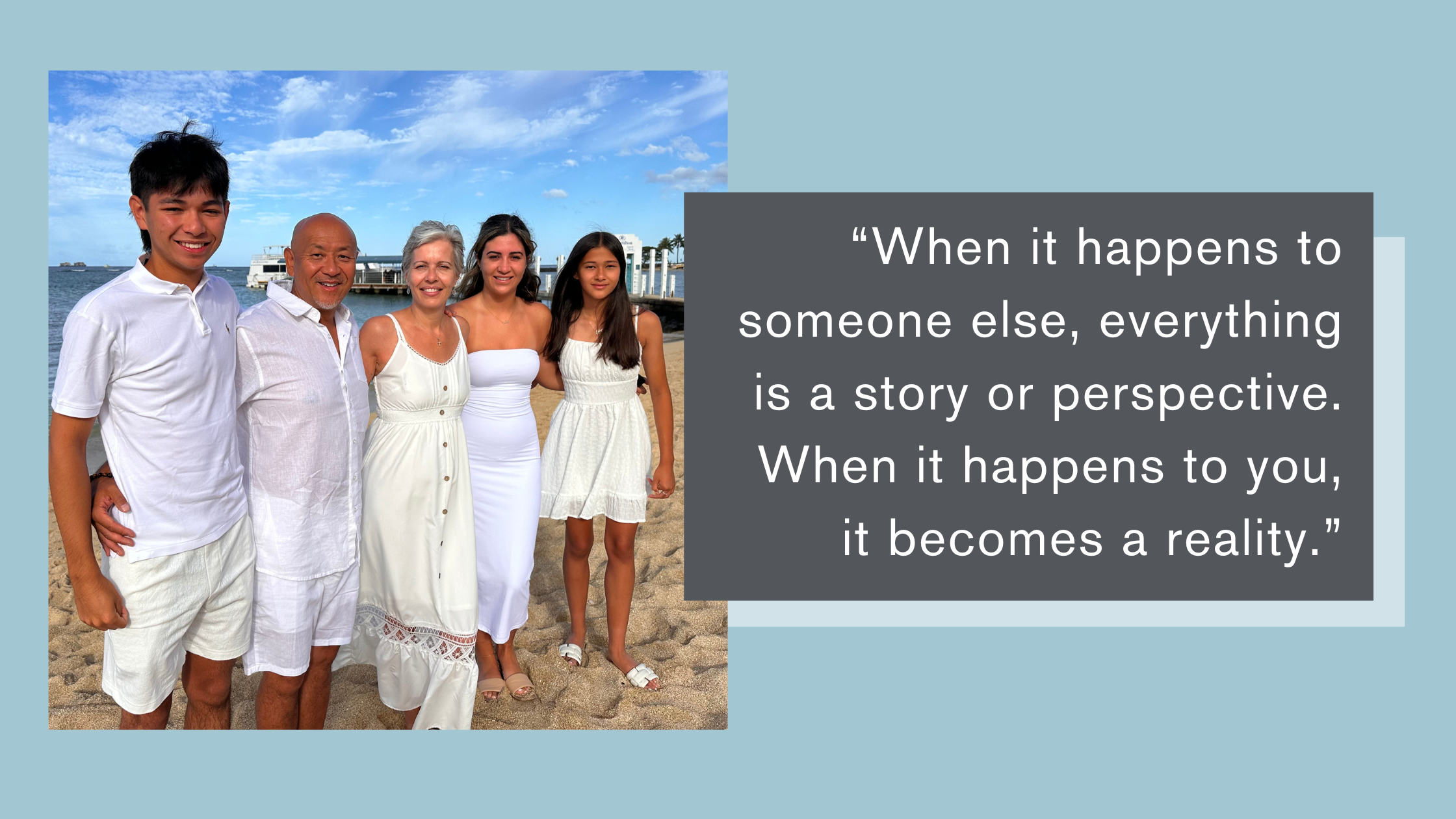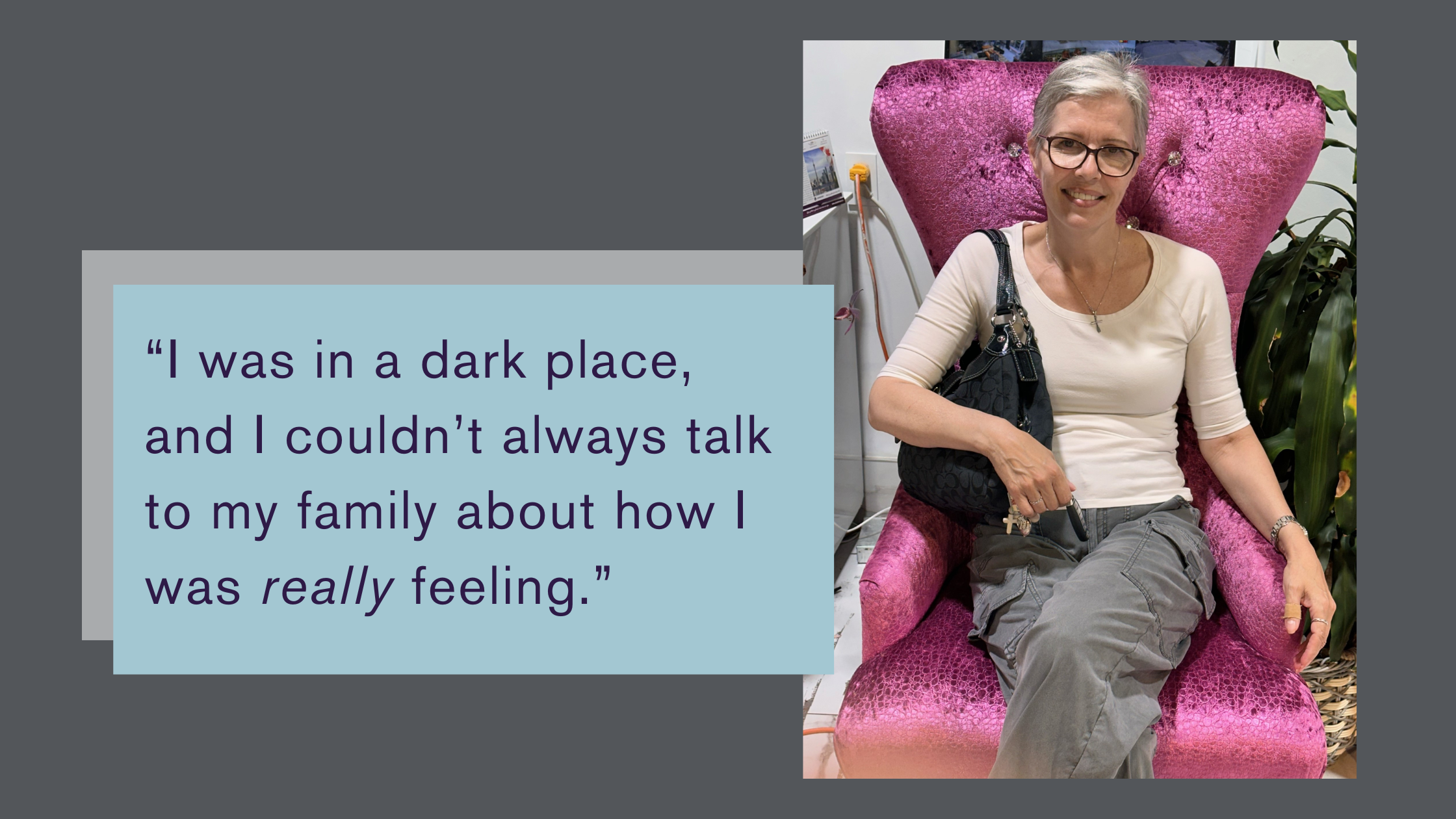Pancreatic cancer survivor grateful for Pancreatic Cancer Canada’s support programs
Sandra Mahne was being treated for kidney stones but when she woke up with yellow skin and eyes on the morning of June 7, 2023, she knew that something wasn’t right. She called her urologist who advised her to go to the hospital where she underwent a series of tests. By 11 pm that night, she was given the diagnosis that she was most afraid of hearing – it was pancreatic cancer.
Sandra had lost both her grandmother and a cousin to pancreatic cancer, so she knew immediately that this diagnosis was likely a death sentence. Sitting alone in the hospital that night, she thought of her family, including her three children, and worried that she didn’t have much time left.

The next day, Sandra’s perspective shifted. Her urologist explained that the tumour was isolated to the head of her pancreas, making her eligible for the Whipple surgery. One week later, on June 14, 2023, she underwent surgery at Sunnybrook Health Sciences Centre. The 8-hour long surgery left her with an incision running from her breastbone down below her belly button.
“The first night after my surgery was excruciating,” explains Sandra. “I just knew I had to get home to heal. My support system was at home – my family. I just wanted to be in my own bed and healing at home.”
Sandra spent five days in hospital and was discharged to recover at home before beginning her second form of treatment: chemotherapy. While healing physically, Sandra realized that she needed help to manage the mental challenges that come with this disease.
“I was in a dark place.”
Following her surgery, Sandra understood that she was very lucky compared to most people who face a pancreatic cancer diagnosis. But she was struggling to manage the practical and emotional impacts of her diagnosis and treatment, so she started looking for help.
“My family – my kids and my husband, their support and nurturing were my greatest source for strength, determination and resolve,” says Sandra. “But I was in a dark place, and I couldn’t always talk to my family about how I was really feeling.”
Sandra contacted Pancreatic Cancer Canada and learned about our short-term counselling and peer support programs. Through PCC’s program, Sandra was connected with Laura, a counsellor at Wellspring, who helped her better understand her diagnosis and how to talk about her feelings.
“She helped me figure out and navigate my way through it – how I was feeling mentally, physically, emotionally,” explains Sandra. “When it happens to someone else, everything is a story or perspective. When it happens to you, it becomes a reality.”

Talking to someone who truly understands
Sandra was also connected with John, a pancreatic cancer survivor and peer support volunteer. Their shared experience meant John was able to truly understand and relate to what Sandra was going through, offering her meaningful support and empathy.
“He knew what it was like on this side of the fence,” says Sandra. “We could get very specific about things like the side effects of chemo and how to talk to my kids. That was invaluable to me – both people I knew who had pancreatic cancer had passed and here was an individual who was still here.”
For Sandra, speaking to someone who had survived pancreatic cancer was inspirational and gave her a sense of optimism about her own path ahead. Through her treatment, she developed a deep belief in the connection between mind and body and the support she received from Laura and John helped her to face her journey with resolve and positivity.
Advice for others facing pancreatic cancer
Sixteen months after her diagnosis, Sandra scans ruled her NED, which means no evidence of disease. While she understands that her journey isn’t over, Sandra is grateful for her mental and physical health, her family, friends, and Laura and John.
Sandra believes that her pancreatic experience was characterized by a combination of luck, access to timely care and incredible support from her family and Laura and John. Facing the realities of a pancreatic cancer diagnosis and treatment can cause anxiety and stress, but having support and resources can provide essential tools to cope.
“I understand it might be difficult for others to reach out for help, but my advice is to just do it,” says Sanda. “There is no risk or shame in asking for help and it can change everything about your journey.”
Learn more about our specialized support programs for patients and their families.
Pancreatic Cancer Canada has partnered with the cancer support experts at Wellspring to create a specialized program for our community that offers Peer Support, Monthly Support Groups and Short-Term Counselling specifically geared towards those experiencing the unique impact of pancreatic cancer.

Recent Comments